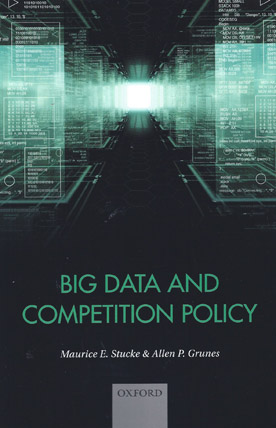
Big Data and Big Analytics are a big deal today. Big Data is playing a pivotal role in many companies' strategic decision-making. Companies are striving to acquire a 'data advantage' over rivals. Data-driven mergers are increasing.
These data-driven business strategies and mergers raise significant implications for privacy, consumer protection and competition law. At the same time, European and United States' competition authorities are beginning to consider the implications of a data-driven economy on competition policy.
In 2015, the European Commission launched a competition inquiry into the e-commerce sector and issued a statement of objections in its Google investigation. The implications of Big Data on competition policy will likely be a part of the mix. Big Data and Competition Policy is the first work to offer a detailed description of the important new issue of Big Data and explains how it relates to competition laws and policy, both in the EU and US.
The book helps bring the reader quickly up to speed on what is Big Data, its competitive implications, the competition authorities' approach to data-driven mergers and business strategies, and their current approach's strengths and weaknesses.
Written by two recognized leading experts in competition law, this accessible work offers practical guidance and theoretical discussion of the potential benefits (including data-driven efficiencies) and concerns for the practitioner, policy maker, and academic alike.